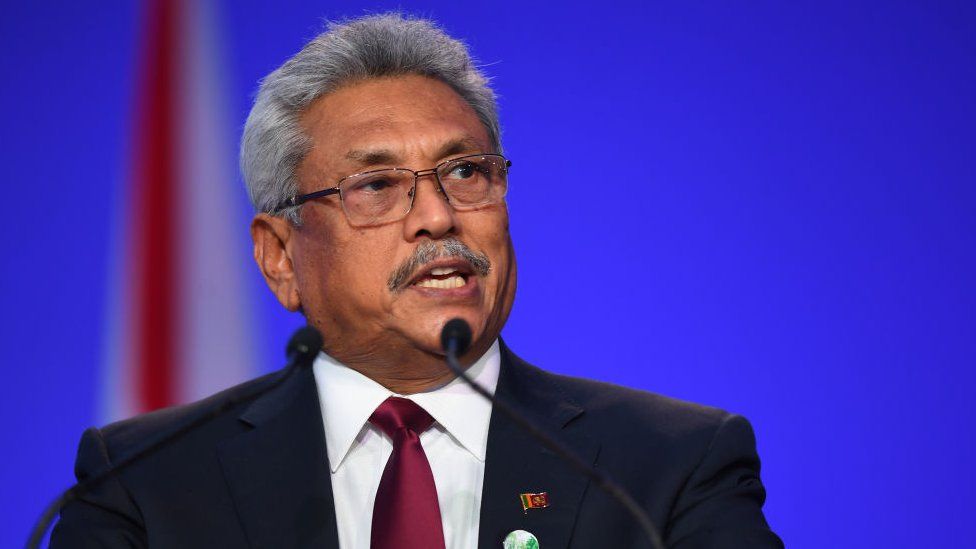More than 40 MPs have left Sri Lankan president Gotabaya Rajapaksa’s coalition government.
MPs from parties aligned with Mr Rajapaksa’s Sri Lanka Podujana Peramuna (SLPP) led coalition said they would now independently represent themselves.
It comes as the South Asian nation is grappling with power cuts and shortages due to an economic and foreign exchange crisis.
This has led to mass protests demanding Mr Rajapaksa’s resignation.
It is unclear what the implications of the MPs’ actions are at this point – they have distanced themselves from the government but have not extended support to the opposition.
It could however, call into question the prime minister’s authority over the parliament.
Mr Rajapaksa’s cabinet has already resigned, but both the president and his brother, Prime Minister Mahinda Rajapaksa, have so far refused to step down.
Instead, the president called on opposition parties to help him form a national government and accept cabinet portfolios.
They have all refused and have reiterated demands for him to resign.
On Tuesday, a freshly-appointed finance minister also announced he was quitting the job less than 24 hours after he’d accepted the post.
Ali Sabry, a close ally of President Rajapaksa, said he would give up his parliament seat for someone outside politics who might be “suitable to handle the situation”.
Meanwhile, anti-government protests continued on Tuesday in major cities across the country.
In the past days, demonstrations calling for the resignation of the president have picked up momentum.

Protesters even defied a curfew meant to last from Friday to Sunday in order to halt a planned day of protests, after a demonstration outside the president’s house on Thursday night turned violent.
The demonstrations mark a massive turnaround in popularity for Mr Rajapaksa, who swept into power with a majority win in 2019, promising stability and a “strong hand” to rule the country.
Sri Lanka is now struggling to pay for imports of fuel and other goods because of a shortage of foreign exchange, which has exacerbated its worst economic crisis since independence from the UK in 1948.
The country needs foreign currency to pay for imports of fuel.
This video can not be played
To play this video you need to enable JavaScript in your browser.

Have you been affected by what’s happening? If you are able to talk to us please email: haveyoursay@bbc.co.uk.
Please include a contact number if you are willing to speak to a BBC journalist. You can also get in touch in the following ways:
- WhatsApp: +44 7756 165803
- Tweet: @BBC_HaveYourSay
- Upload your pictures/video here
- Or fill out the form below
- Please read our terms & conditions and privacy policy
If you are reading this page and can’t see the form you will need to visit the mobile version of the BBC website to submit your question or comment or you can email us at HaveYourSay@bbc.co.uk. Please include your name, age and location with any submission.




























